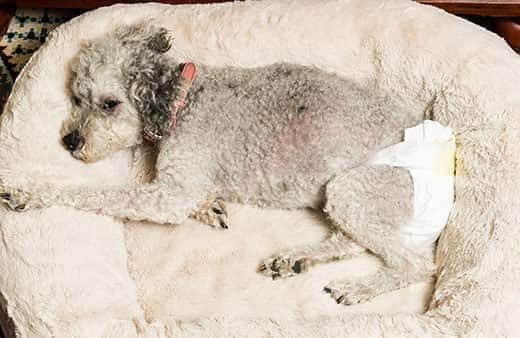
-
Find the right food for your petTake this quiz to see which food may be the best for your furry friend.Find the right food for your petTake this quiz to see which food may be the best for your furry friend.Health CategoryFeatured products
 Adult Chicken & Barley Recipe Dog Food
Adult Chicken & Barley Recipe Dog FoodSupports lean muscle and beautiful coat for adult dogs
Shop Now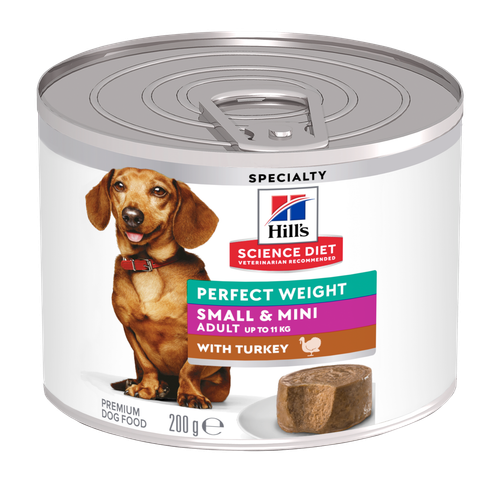 Perfect Weight Adult Small & Mini Dog Mousse with Turkey
Perfect Weight Adult Small & Mini Dog Mousse with TurkeyHill's Science Diet Adult Small & Mini Perfect Weight Dog Food with Turkey is a complete pet food for small breed adult dogs, including those that are less active, neutered or otherwise prone to weight gain.
Shop Now Adult Light Large Breed Chicken Meal & Barley Recipe Dog Food
Adult Light Large Breed Chicken Meal & Barley Recipe Dog FoodFewer calories for less active large breed dogs
Shop NowFeatured products Adult Healthy Cuisine Roasted Chicken & Rice Medley Cat Food
Adult Healthy Cuisine Roasted Chicken & Rice Medley Cat FoodDelicious roasted chicken and rice in a mouthwatering sauce
Shop Now Adult Perfect Digestion Chicken, Barley & Whole Oats Recipe Cat Food
Adult Perfect Digestion Chicken, Barley & Whole Oats Recipe Cat FoodHill's Science Diet's breakthrough nutrition supports ultimate digestive well-being & healthy microbiome
Shop Now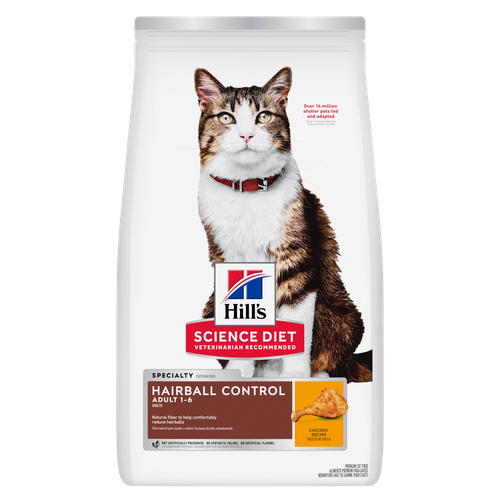 Adult Hairball Control Chicken Recipe Cat Food
Adult Hairball Control Chicken Recipe Cat FoodNatural fibre comfortably reduces hairballs
Shop Now -
DogCat
- Cat Tips & Articles
-
Health Category
- Weight
- Skin & Food Sensitivities
- Urinary
- Digestive
- Kidney
- Dental
- Serious Illness
-
Life Stage
- Kitten Nutrition
- Adult Nutrition
Featured articles Fun Ideas for Kids and Pets This Summer
Fun Ideas for Kids and Pets This SummerOutdoor summer activities with your dog or cat can be fun for kids, too. Learn how they also teach kids responsibility & creates a bond with their pet.
Read More Water
WaterWater is the most important nutrient of all and essential for life. Animals can lose almost all their fat and half their protein and still survive, but if they lose 15% of their water, it will mean death.
Read More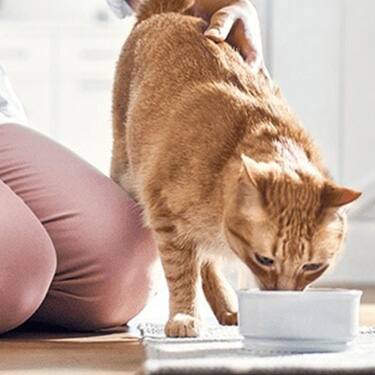 Show some love with wet foods: a great choice for pets with health issues
Show some love with wet foods: a great choice for pets with health issuesShow some love with wet foods: a great choice for pets with health issues.
Read More -


If you're thinking of adopting a female dog, you may wonder if female dogs have periods, or if you live with one that isn't spayed you might be curious as to why she is bleeding. Female dogs do undergo a regular cycle and bleed once they reach maturity, if they are not spayed. The experience may seem frightening at first (and messy), but the better you understand it, the more you'll be able to help your dog.
Dogs in Heat and the Estrus Cycle
Do female dogs have periods? Well, yes, but they are a part of what is properly called an estrus cycle. You may have also heard of a dog as being "in heat" or "in season" during this time, and the estrus cycle is sometimes called a "heat cycle."
The first estrus cycle for dogs happens when the animal reaches puberty at around six months of age, though that number may vary between breeds and individual dogs. Smaller breeds tend to reach maturity earlier, while larger dogs might take more than a year to have their first heat.
The cycle often happens twice per year. The American Kennel Club (AKC) writes that some smaller breeds can go into heat up to four times per year, and extra-large dogs, such as St. Bernards or Great Danes, may only experience it every eighteen months. When a dog enters the cycle, it lasts for two to three weeks, though the actual amount of time differs for each individual dog. During this time, the vulva becomes red and swollen, a pink or clear discharge leaks out, and your dog will likely seem jittery and alert, notes the AKC.


Tasty Tips
Dealing with Discharge
Discharge also varies quite a lot and is not pure blood, notes PetWave. Some dogs may leave spots on the floor or dog bed, while for others the discharge will be barely noticeable. The cycle often starts with a heavier reddish discharge in the beginning, which fades to a yellow, pink, or watery spotting later on. Cleanup can be exasperating, and Canine Journal has even reviewed some doggy diapers for pups in heat. If you use diapers make sure to change them frequently and keep the skin clean and dry. Heavy bleeding or bleeding outside of a heat cycle is not normal. If your dog experiences it, you should call your veterinarian immediately.
While dogs are bleeding, they also urinate more frequently, says Daily Puppy. Some dogs will mark areas of their house or outdoors with their strong-smelling urine, known to attract their male counterparts and alert them of their mating status.
Since all of these symptoms can be startling or uncomfortable, some dogs can become grouchy or fretful while in heat. Pethelpful recommends showing your dog a little extra love and attention during this time. Keep an eye on her appetite and give her frequent baths to clean up any discharge. You should also be careful to keep her away from any male dogs who might turn aggressive and make sure she is securely on a leash or behind a fence when she's outside.
Questions to Ask Your Veterinarian
If you adopted a dog that wasn't spayed, this whole bleeding experience will probably be new for you. Make a list of any questions you have and visit your veterinarian to learn about how to best care for a dog in heat. If you aren't sure what questions to ask your vet, here are a few to get you started:
- At what age should I expect this particular dog to start having estrus cycles?
- What are some ways to keep up with her hygiene when she bleeds?
- What are your recommendations for cleaning up anything she might bleed or pee on?
- When is the right time to spay her?
The Importance of Spaying Your Pet
Are you ever planning on breeding your pet? If not, there's no reason why your dog needs to experience her estrus cycle. Pets that don't need to become pregnant should get surgically sterilized. The sterilization is called ovariohysterectomy, though it is most commonly referred to as spaying for female animals. The AKC points out the numerous benefits of spaying and neutering, including reduced health risks for your pup, gentler behavior for many dogs, and fewer homeless animals. A litter of roly-poly puppies may be cute, but the time and veterinary costs necessary to care for one is more than most pet parents realize if you're not used to breeding dogs. And there are many puppies in shelters that are already born and waiting to come home with you.
Also, be sure to talk to your vet about proper nutrition, pre- and post-surgery. After a dog gets spayed, her metabolism tends to slow down, so you might look for a food specially formulated for spayed and neutered pets. The right nutrition can play a pivotal role in recovery and overall health for your pup.
There's no need to wonder "Why is my dog bleeding?" if you can understand and prevent it. Knowing your pet's reproductive cycle will help you know what to expect if she goes into heat, and you'll know that spaying your new furry friend can prevent it from happening altogether.


Erin Ollila believes in the power of words and how a message can inform—and even transform—its intended audience. Her writing can be found all over the internet and in print, and includes interviews, ghostwriting, blog posts, and creative nonfiction. Erin is a geek for SEO and all things social media. She graduated from Fairfield University with an M.F.A. in Creative Writing. Reach out to her on Twitter @ReinventingErin or learn more about her at http://erinollila.com.
Related products

Fewer calories for less active large breed dogs

Hill's Science Diet Adult Small & Mini Perfect Weight Dog Food with Turkey is a complete pet food for small breed adult dogs, including those that are less active, neutered or otherwise prone to weight gain.

Supports lean muscle and beautiful coat for adult dogs
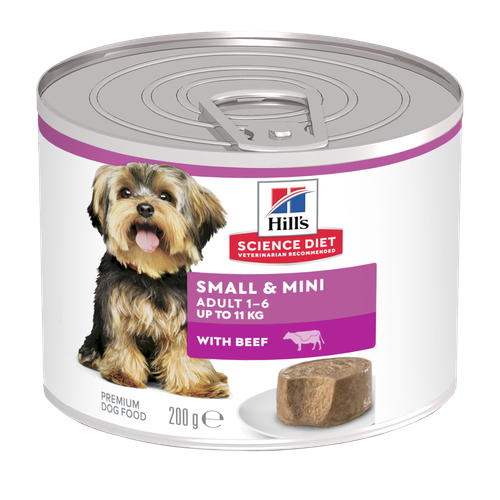
Hill's Science Diet Small & Mini Adult Mousse with Beef is a complete pet food for small breed Adult dogs 1–6 years old. It is a tailored wet food for the unique needs of your Small & Mini dog during the prime of their life.
Related articles

Discover how the field of dog science is giving us more and more insights into the inner workings of our furry best friends.

Extra pounds can cause problems for your dog's overall health. Learn the signs that your dog might be overweight, and what you can do to manage its weight.

Dogs with sensitive skin have special dietary needs. Even healthy dogs can develop skin problems. Learn more about sensitive skin issues in your dog.
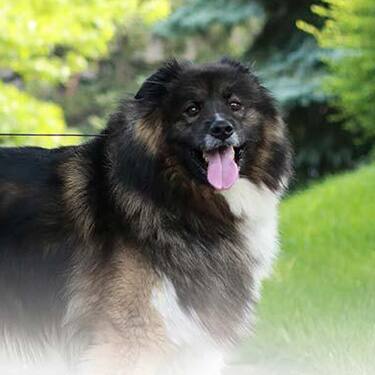
A little exercise can make a big difference. Not only will it enhance your pet’s health, but it will beef up your relationship as well.

Put your dog on a diet without them knowing
Our low calorie formula helps you control your dog's weight. It's packed with high-quality protein for building lean muscles, and made with purposeful ingredients for a flavorful, nutritious meal. Clinically proven antioxidants, Vitamin C+E, help promote a healthy immune system.
Put your dog on a diet without them knowing
Our low calorie formula helps you control your dog's weight. It's packed with high-quality protein for building lean muscles, and made with purposeful ingredients for a flavorful, nutritious meal. Clinically proven antioxidants, Vitamin C+E, help promote a healthy immune system.


